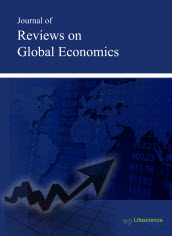Financial Capability of Accounting Students in South African Universities
Abstract
This study surveyed 1582 students studying Accounting degrees at universities in South Africa to assess their financial capability levels and intra-component drivers of financial capability. The study utilised statistical methods such as structural equation modelling technique was used to determine drivers of financial capability; regression analysis was further done to examine relationships between the students’ mean percentage scores and their socio-demographic factors. The findings of the study suggest that accounting students are highly financially capable. It was further found that financial capability is driven by financial attitude; financial behaviour, and numeracy skills of the accounting students. In addition, the study found education, level of study, and race as statistically significant and socio-demographic influences of financial capability. This study suggests that financial capability can be further improved via improvements in financial attitude, financial behaviour, numeracy skills and education among racial groups in South Africa.
Downloads
Published
How to Cite
Issue
Section
License
Policy for Journals/Articles with Open Access
Authors who publish with this journal agree to the following terms:
- Authors retain copyright and grant the journal right of first publication with the work simultaneously licensed under a Creative Commons Attribution License that allows others to share the work with an acknowledgement of the work's authorship and initial publication in this journal.
- Authors are permitted and encouraged to post links to their work online (e.g., in institutional repositories or on their website) prior to and during the submission process, as it can lead to productive exchanges, as well as earlier and greater citation of published work
Policy for Journals / Manuscript with Paid Access
Authors who publish with this journal agree to the following terms:
- Publisher retain copyright .
- Authors are permitted and encouraged to post links to their work online (e.g., in institutional repositories or on their website) prior to and during the submission process, as it can lead to productive exchanges, as well as earlier and greater citation of published work .


